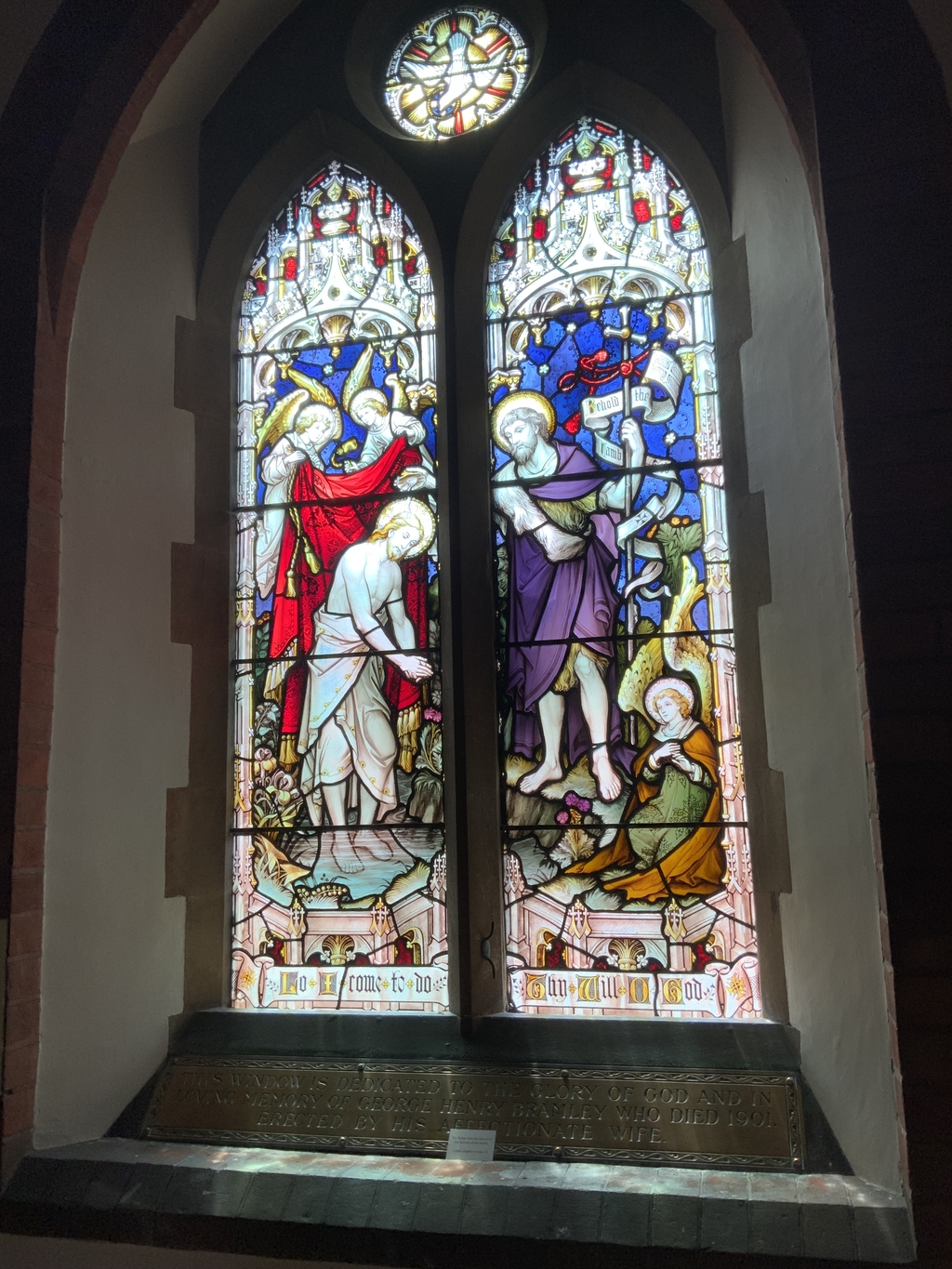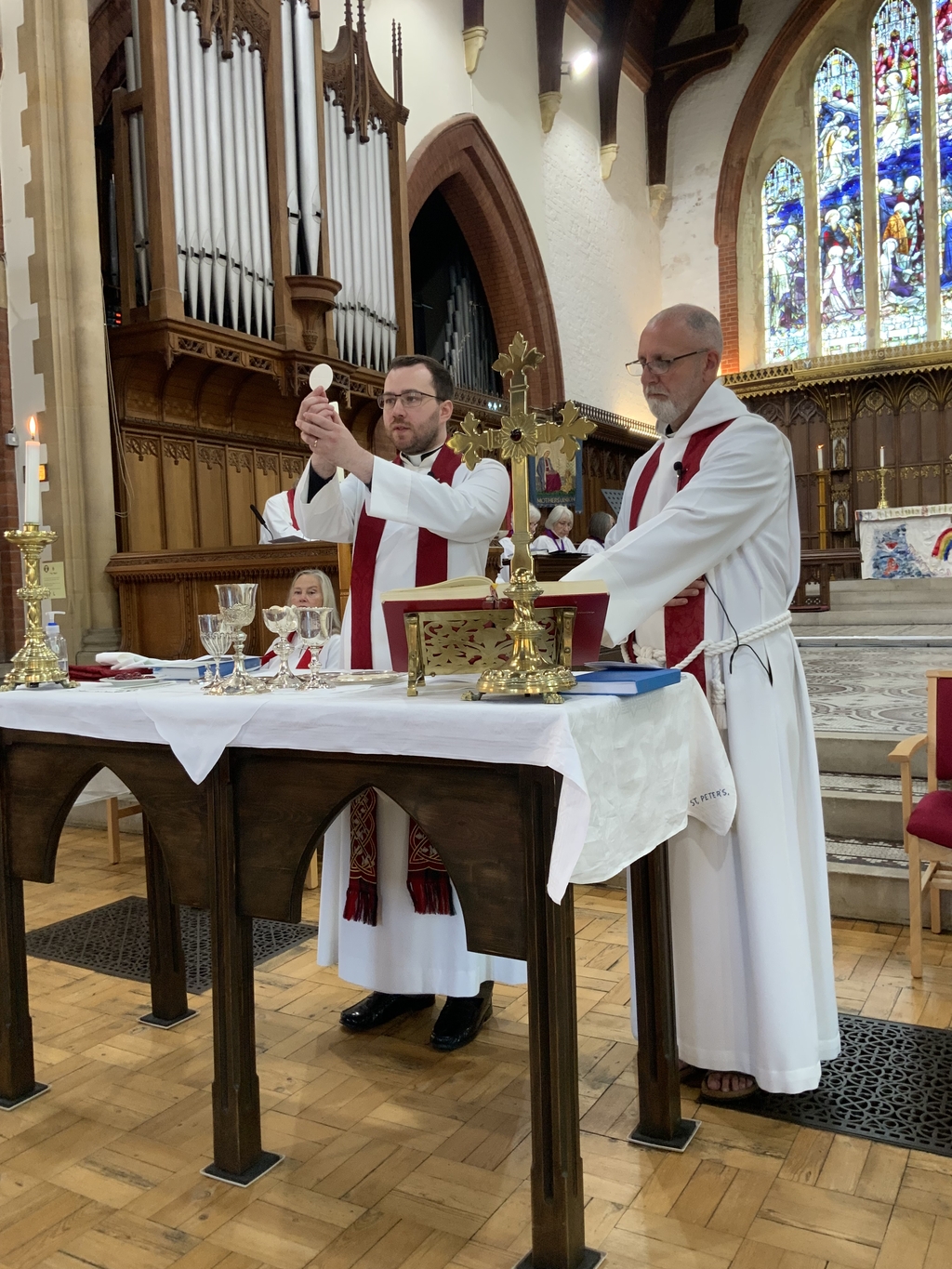Put yourself into this story. Which of the two do you most associate with, the tax collector or the Pharisee? Perhaps you distance yourself from both of them, but I’d like you to think about it.
The tax collector is likely to have been a dodgy character, a chancer, a double-dealer lining his own pocket at the expense of others, perhaps equivalent to a collaborator in the war, as he collected taxes on behalf of the occupying forces.
The Pharisee probably considered that he was doing everything God wanted of him: he fasted twice a week and donated a tenth of his income. He might see himself as the very model of a good and holy man. He would be likely to look down upon the tax collector: he would think it right to treat him with contempt.
Which of the two do you most associate with, the tax collector or the Pharisee?
As usual, Jesus turns everything upside down. Both of these characters go to the temple to pray. The Pharisee stands by himself, and thanks God that he is superior to other people. The tax collector hardly dares to stand before God at all, he is fully aware of his failings. He beats his breast and asks for mercy.
Now which of the two do you most associate with, the tax collector or the Pharisee? Hopefully, both. Nobody is so righteous that they haven’t got anything to confess to God. We all draw the line somewhere as to which sins are worse than others, but to God all sins are unacceptable. I suggest that one of the dubious things the Pharisee did was to stand by himself. He might have stood alongside the tax collector as he made his confession, rather than looking down on him.
Confession and repentance, ie changing our ways, is good for us. It’s not about being miserable. It’s about freeing us from the misery that sin drags us into. We are forgiven. In the Lord’s prayer we ask God to forgive us, as we forgive others.
Our reading from Jeremiah the prophet comes from a chapter which describes the awful effects of a terrible drought. We have fresh in our minds the mini-drought we went through in the summer, which was bad enough. In the Old Testament world in which every event was seen to be a direct blessing or a punishment from God, the people cried out to God.
They wanted God to see them through, to make things well, and so they were ready to repent collectively as well as individually. Alongside their tears were God’s tears.
Jesus showed us that every single one of us is accountable for our own wrongdoing, but I wonder how much we are collectively responsible too.
When we go shopping, how much do we contribute toward farming methods which use harmful pesticides, use modern-day slaves for labour, or employ practices which are cruel to animals?
Are we conscious of how our actions impact the environment?
How responsible are we for government decisions?
We might prefer to distance ourselves rather than associate with any of these issues, but I’d like you to think about it.
It strikes me that maybe there is a place for national as well as individual lament as we set our hope on God, and trust in him to see us through.
‘The Lord stood by me and gave me strength...’ said Paul, ‘I was rescued from the lion’s mouth.’ If we, like Paul, pour ourselves out, give our all in service, fight the good fight, finish the race and keep the faith, we’re promised a crown of righteousness too. When we love others as ourselves, as Jesus taught us, we will be the Pharisee and tax collector who stand together as we follow Jesus. With hearts full of love, God will see us through.
Amen.
Julie Rubidge, Lay Minister











